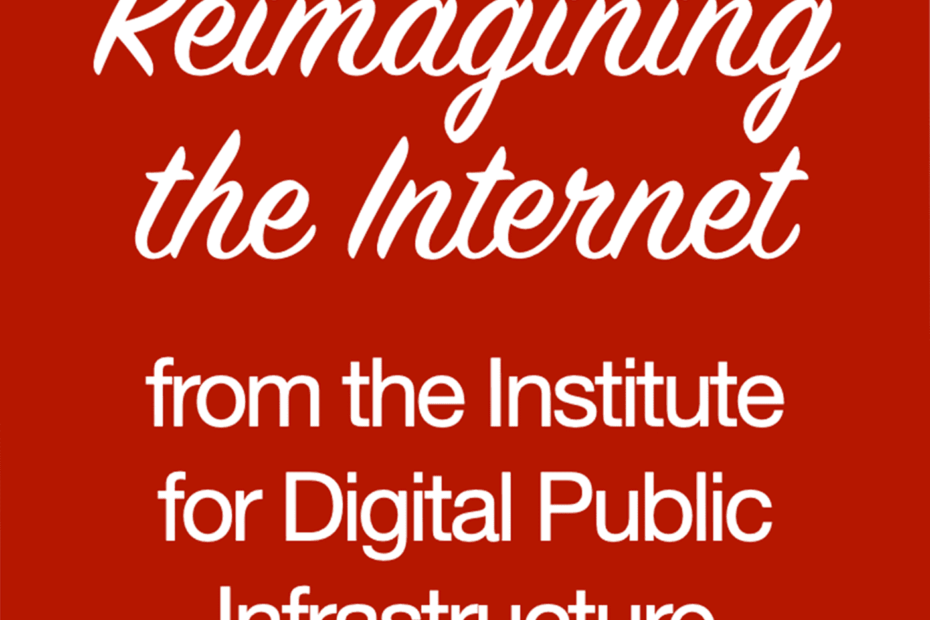My US readers – Let’s be honest: you’re doomscrolling. It’s not helping. Unless you’re an attorney who can intervene legally in a voter intimidation scenario, there’s very little useful you can do right now. You have permission to doomscroll after 8pm when there’s some actual news coming in. My non-US readers: you’re probably sick to death of the US election, because I know we all are.
So let’s do something different: let’s do some work around hope. I’m working now on an interlocking set of projects intended to imagine and recreate social media. In the long run, this will be a research center at UMass Amherst called the Institute for Digital Public Infrastructure where we build tools like Gobo.social that let you control how you use your existing social networks and connect with new, decentralized and democratic ones. But until that launches this spring, I’m working on two other projects that might be worth your attention.
Reimagining the Internet is a weekly podcast where I interview some of the smartest people thinking about how we might change the internet for the better. In episode 2, Talia Stroud at the University of Texas Austin talks about the Civic Signals initiative – how could existing and new social media platforms measure healthy and toxic conversations and help platforms optimize for civic health? In episode 3, which we released today, Evan Henshaw-Plath, who has a long path as an activist technologist and a hand in the creation of Twitter, talks about Planetary.social, a distributed social network that seeks to end the client/server model and turn every user into an independent node. We talk about the conceptual and technical challenges of rewiring social media on a very basic and fundamental level.
These podcasts are produced by the remarkable Mike Sugarman, who wrote our intro music and does amazing work turning these conversations into something resembling a coherent narrative. This series is being released weekly, and we’ve already released some excellent episodes that I’m excited to share. Thanks to the Knight First Amendment Institute who are helping us get these episodes out into the world. Please subscribe to “Reimagining the Internet” on your favorite podcasting app, and check out past episodes here.
Speaking of the Knight First Amendment Institute at Columbia – a highlight of my time there has been working with Chand Rajendra-Nicolucci, an excellent researcher who’s co-authoring a series of posts with me on the “logics” of various social media platforms. The overall project is called “Mapping Social Media” and our latest update is titled “What If Social Media Worked More like Email?” It follows last week’s piece on cryptocurrency/blockchain based social networks and their associated dramas, which was a great piece to research and write together. These pieces aren’t comprehensive overviews of the space – we neglect the Fediverse in this week’s piece, for instance – but they are an introduction to the concepts and thinking behind different ways social networks can operate. I’m working this week on a piece on what a civic social network might look like, and what aspects of that logic can already be found online.
The collapse of American democracy, or the long, slow work of reconstructing normalcy can wait a few hours – come visit with us and take a brief tour of the hopeful world in which people are working hard to fix broken systems and make them better. The doomscrolling can wait, I promise.
